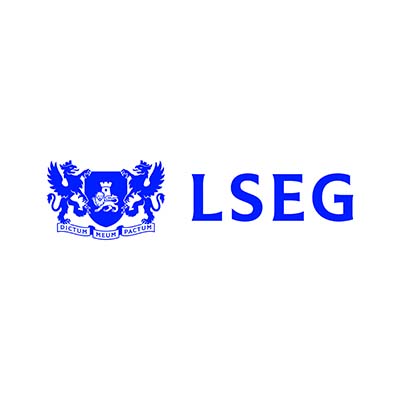© 2022 All rights reserved

• The covid crisis has led to increased remote working. What impact does this have when it comes to cybersecurity and operational resilience.
• How can governance and ICT risk management be strengthened?
• To what extent is concentration risk among third party ICT providers an issue? How could
this be addressed?
• How can we arrange efficient information sharing between different actors?
• Should all financial institutions be required to run operational resilience testing?
• How do we run industry-wide tests and share best practices?
• What is the importance of geographical location of data and critical infrastructure?
• Should supervision lie with a single authority, or should the responsibility lie with a consortium of authorities?
14.00 – 14.30 Registration and virtual networking
14.30 – 14.35 Introductory remarks by moderator
14.35 – 15.10 Introductory remarks by speakers
15.10 – 16.10 Panel Discussion and Q&A
16.10 – 17.00 Virtual networking

EY EMEIA FSO Consulting Cybersecurity Leader
Kanika has more than 20 years of experience in delivering Cybersecurity engagements and works closely with regulators to provide thought leadership and market insights to the industry. She has significant experience in working with Boards and Executive Committees, bringing deep expertise in evolving Cybersecurity regulatory expectations. Kanika also leads the EY EMEIA FSO Third-Party Risk Management (TPRM) and Outsourcing solution. Kanika works with a wide range of Financial Services clients. Kanika is also accountable for a number of EY’s Diversity, Equity & Inclusiveness (DE&I) initiatives, including several Women in Technology initiatives. She is very passionate about DE&I and works with multiple local charities and non-profit organisations which target the causes of inequality and help people from diverse backgrounds develop their skills and confidence to enhance their employability.

Member of the European Parliament
Alfred Sant studied physics and maths at the University of Malta, diplomacy at the Institut International d’Administration Publique (now amalgamated with the ENA) in Paris, and business administration at Boston and Harvard Universities. He worked as a diplomat at Malta’s Mission to the then EEC in Brussels (1970 - 1975), as executive deputy chairman of the Malta Development Corporation (now Malta Enterprise) during the late seventies/early eighties, as a management consultant in between and later. He was chairman of the Labour Party’s information department (1982 – 1984), President of the Party (1984 - 1988), a Labour M.P. (1987 – 2013), Labour Leader and Leader of the Opposition (1992 -2008) and Prime Minister (1996 – 1998). Over the years Sant wrote plays for the theatre, radio and TV, as well as novels and short stories in the Maltese language; was editor of three magazines and for thirteen years a correspondent of the Economist Intelligence Unit; and he wrote extensively in English and Maltese for the political and economic press. Alfred Sant was elected Member of the European Parliament in May 2014 and again in May 2019. He is a member of the Economic and Monetary Affairs committee and recently a shadow rapporteur for the Socialists and Democrats group on DORA.

Technological Innovation & Cyber Security Advisor, European Commission
Peter advises on Technological Innovation, Digital Transformation and Cybersecurity at the European Commission’s Directorate-General for Financial Stability, Financial Services and Capital Markets Union. He has led work on the European Commission’s Fintech Action Plan and Co-chairs the European Commission’s Fintech Taskforce. He has extensive experience and expertise in EU policy and regulation covering financial services, digitalisation, security and consumer protection. Earlier in his career, Peter was Finance Counsellor at the EU Embassy in Washington DC. He has also been a member of the private offices of the commissioner for the internal market and services and the commissioner for health and consumer protection. Before joining the European Commission, Peter advised major financial services companies on EU regulatory affairs. He is a Dutch national and holds master degrees in European affairs and political science from the College of Europe in Bruges and the University of Leuven, Belgium.

Group Head of Technology, Cyber & Resilience Risk, LSEG
Sabrina joined LSEG in January 2019 prior to joining Sabrina was Group CISO for four years, at Equiniti, where she set up and matured its Group Security function and delivered a transformation programme. Prior to that she held senior roles at AXA Group and VISA EMEA managing Security and Risk. She actively participates in ISO standard drafting activities, currently serving as Vice Chair of IST33/1, the UK Mirror Committee of ISO/IEC SC27/WG1, and the Editor for the revision of ISO/IEC 27002:2013. She is a guest lecturer for the MSC in Information Security at Royal Holloway, University of London. Sabrina has an MSc. Information Security from Royal Holloway, University of London.

Head Of External Engagements, Operational and Technology Risk, DTCC
Jason Harrell is Executive Director and Head of External Engagement at DTCC, where he leads the firm’s global advocacy and engagement for cybersecurity and cyber resilience, new and emerging technology, outsourcing and third-party risk management. In this role, he partners with industry peers, supervisors, regulators, international standards-setting bodies, government officials and trade associations to address policy initiatives and implement solutions that further improve the resilience of the financial services sector. He is an active participant in several global industry organizations and is also on the board for the Cyber Risk Institute. Jason joined DTCC in 2016 as the Head of TRM Risk Analysis and Reporting where he was responsible for cyber-risk assessment and performance metrics programs. Prior to DTCC, Jason was the Corporate Senior Information Risk Officer for BNY Mellon Investment Management. He previously held cyber-related positions within IT, Risk and Business Operations at ABN AMRO, Royal Bank of Scotland and the New York Board of Trade. Jason has over 20 years of experience in Information Technology (IT), Privacy, and Cybersecurity Risk Management within financial services and holds several certifications in technology, information security and data privacy. A frequent conference panelist, Jason often speaks about cybersecurity, resilience, and emerging technology public policy. He has published several articles on these topics and has contributed to the development of several industry white papers.

Director Mastercard European Cyber Resilience Centre
Prior to joining Mastercard in July 2020, David served for over 14 years in the UK’s National Crime Agency (NCA). David’s law enforcement career culminated in the National Cyber Crime Unit (NCCU), where he was the NCA lead for Protecting UK business from cyber crime attacks and was the national UK police lead for Preventing cyber crime. David also led strategic engagements with business in order to align law enforcement assets to combat the most significant cyber threats to the UK. David is now the Director of Mastercard’s European Cyber Resilience Centre (ECRC), based in Waterloo, Belgium. The ECRC commenced operations in 2020 and has been developed to protect Mastercard’s network, its customers and consumers by strengthening public, private and regulatory collaboration and enhancing cyber resilience across Europe.




© 2022 All rights reserved
